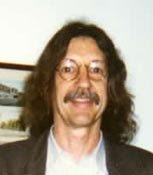 I’m reading a forum in Social Science History on William H. Sewell, Jr.‘s Logics of History: Social Theory and Social Transformation. The forum includes contributions from George Steinmetz, Dylan Riley, David Pedersen, and Sewell himself in a final response.
I’m reading a forum in Social Science History on William H. Sewell, Jr.‘s Logics of History: Social Theory and Social Transformation. The forum includes contributions from George Steinmetz, Dylan Riley, David Pedersen, and Sewell himself in a final response.
This is my first encounter with Sewell or any of his work. As someone who only finished his dissertation in 2006, it would be tempting to blame my graduate program (Loyola University Chicago) for this ignorance. That would be unfair. I took my first and only historiography-focused graduate course in the fall of 1998. If I read Riley’s outline of Sewell’s work correctly, 1998 was the middle of Sewell’s three phases of theorizing. In sum, it’s hard to read and understand someone’s theorizing when that body of work is incomplete.
I don’t want to comment in depth, yet, on the SSHA forum or Sewell’s work because I’ve only read the contributions of Steinmetz, Riley, and Pedersen. Much of the contributions of the three have to do with Marxist historiography, language theory, semiotics, Marshall Sahlins, Pierre Bourdieu, Jurgen Habermas, Clifford Geertz, Ferdinand de Saussure, and host of other figures familiar to those who have studied the philosophy of history. And Pedersen adds to/complicates the picture further by trying to find common ground between Charles Sanders Peirce and Sewell. Whew!
I haven’t yet dug into Sewell’s reply. I can say preliminarily, however, that as a newcomer I very much appreciated Riley’s rigid reconstruction of Sewell’s three phases. It strikes me as an compact introduction to Sewell’s career (thus far) and the major points of his thinking on the margins of history and sociology. But I look forward to Sewell’s reaction to Riley’s retrospective.
Has anyone else read the SHA forum on Sewell? Any comments on Sewell’s contributions to how we think about the study and writing of history?
I’m intrigued. I’ll probably check into purchasing Logics of History
(U of C Press, 2005). It’s a compilation of Sewell’s essays but also contains new materials. I’m not sure how Sewell will affect my thinking about U.S. intellectual history, cultural history, or the history of higher education. Then again, I don’t choose my readings with that kind of foreknowledge. – TL

0